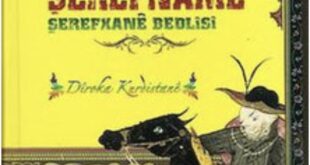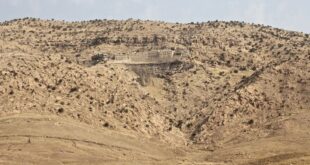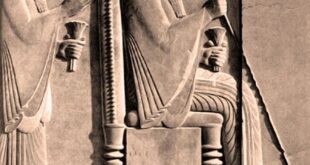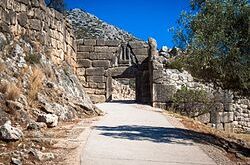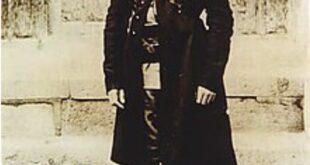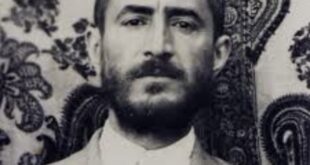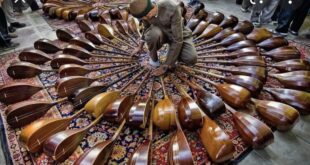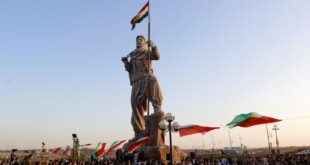The Sharafnama (Kurdish: شەرەفنامە Şerefname, “The Book of Honor”, Persian: Sharafname, شرفنامه) is the famous book of Sharaf al-Din Bitlisi(a medieval Kurdish historian and poet) (1543–1599), which he wrote in 1597, in Persian. Sharafnama is regarded as an important and oldest source on Kurdish history. It deals with the different Kurdish dynasties …
Read More »Zazas
Zazas Not to be confused with Zazi. The Zazas (also known as Kird, Kirmanc or Dimili)[7] are a people in eastern Turkey who traditionally speak the Zaza language. Their heartland consists of Tunceli and Bingöl provinces and parts of Elazığ, Erzincan and Diyarbakır provinces.[3] Zazas generally[8] consider themselves Kurds,[9][6][10][11] and are often described as Zaza Kurds by scholars.[7][12][13][14][15] Zazas Geographic distribution of Zaza speakers (darker green) among Iranian speakers[1] Total population 2 to 3 …
Read More »Mount Alfaf
Mount Alfaf (Syriac: ܛܘܪܐ ܕܐܠܦܦ, ṭūrāʾ Alfaf), also known as Mount Maqlub (جبل مقلوب in Arabic), is a mountain in the Nineveh Plains region in northern Iraq. The mountain lies 30 km to the northeast of Mosul and some 15 km from Bartella. The largest town on the mountain is Mirki which is inhabited by Syriac Orthodox Christians.[1] Mount Alfaf Mount Maqlub, Ṭūrāʾ Alfaf View of the …
Read More »history of Mesopotamia
istory of Mesopotamia historical region, Asia 2-Min Summary Learn about the culture of Mesopotamia in the Fertile Crescent between the Tigris and Euphrates rivers An overview of Mesopotamia. Encyclopædia Britannica, Inc. history of Mesopotamia, history of the region in southwestern Asia where the world’s earliest civilization developed. The name comes from a …
Read More »Mycenae
Mycenae (/maɪˈsiːniː/ my-SEE-nee;[2] Ancient Greek: Μυκῆναι or Μυκήνη, Mykē̂nai or Mykḗnē) is an archaeological site near Mykines in Argolis, north-eastern Peloponnese, Greece. It is located about 120 kilometres (75 miles) south-west of Athens; 11 kilometres (7 miles) north of Argos; and 48 kilometres (30 miles) south of Corinth. The site is 19 kilometres (12 miles) inland from the Saronic Gulf and built upon a hill rising 900 feet (274 metres) above …
Read More »Simko Shikak
Simko Shikak (born Ismail Agha Shikak 1887 – 1930, Kurdish: سمکۆی شکاک, romanized: Simko Şikak) was a Kurdish chieftain of the Shekaktribe. He was born into a prominent Kurdish feudal family based in Chihriq castle located near the Baranduz river in the Urmia region of northwestern Iran. By 1920, parts of …
Read More »Qazi Muhammad
Biography Qazi Muhammad was born into a noble Kurdish family from Mahabad. His father had cooperated with Ismail Shimko during his revolt against the Iranian government in the 1920s, and his brother Sadr Qazi was a member of the Iranian parliament. After his father’s death, he was nominated as a judge in …
Read More »Soran Emirate
Soran Emirate (Kurdish: میرنشینی سۆران) was a medieval Kurdish emirate established before the conquest of Kurdistan by Ottoman Empire in 1514 and later revived by Emir Kor centered in Rawandiz from 1816 to 1836. Kor was ousted in an offensive by the Ottomans. Early years/ While no date has been established for the …
Read More »Yarsanism
Yarsanism, Ahl-e Haqq or Kaka’i (Kurdish: یارسان, romanized: Yarsan Persian: اهل حق), is a syncretic religion founded by Sultan Sahak in the late 14th century in western Iran. The total number of followers of Yarsanism is estimated to be just over half a million in Iran and Iraq who are mostly Kurds from …
Read More »Kirkuk (ancient: Arrapha)
Kirkuk (ancient: Arrapha) At Ta’min Governorate. In Iraqi Kurdistan, near the Khasa River, 250 km north of Baghdad. The modern city and also the site of the ancient Hurrian and Assyrian capital of Arrapha, strategically located, of great importance to the Assyrians. Dates: Assyrian period, late 3rd and 2nd millenium BC; flourished …
Read More » History of Kurdistan
History of Kurdistan
